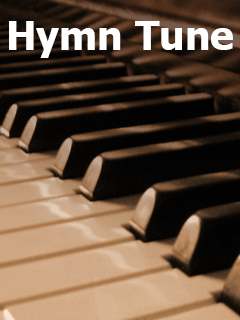William Fiske Sherwin (b. Buckland, MA, 1826; d. Boston, MA, 1888) composed EVENING PRAISE (also called CHAUTAUQUA) in 1877 as the tune to Mary A. Lathbury's text "Day Is Dying in the West." The text and tune were included in the hymnal (1878), and the song was sung at vespers at the Lake Chautauqua assembly in New York for more than one hundred years (see PHH 282 for information on the Chautauqua Institution).
Although he lacked much formal education, Sherwin's interest in music prompted him to attend singing schools and to study with Lowell Mason (PHH 96) and George Webb (PHH 559). He became the music director at Pearl Street Baptist Church in Albany and a teacher at the Albany Female Seminary. Later he taught voice at the New England Conservatory of Music in Boston. In 1874 Methodist Bishop John H. Vincent, founder of the Chautauqua Assembly in New York State, asked Sherwin to organize and direct the Assembly's choruses. Sherwin retained that position until his death. He wrote few hymn texts but many hymn tunes and contributed to song collections such as Robert Lowry's Bright Jewels (1869) and Silas Vail's Songs of Grace and Glory (1874).
EVENING PRAISE neatly reserves its melodic climax for the final phrase of the refrain. Perform this psalm at a good tempo, with two beats per measure. Try the following for a beautiful rendition of this song: sing stanza 1 together, gather the children to sing stanza 2 (memorized ahead of time), and sing stanzas 3 and 4 unaccompanied and stanza 5 with solid accompaniment. The refrain should always be accompanied. Emily R. Brink (PHH 158) composed the descant in 1987 for the Psalter Hymnal. The key lends itself well to voices as well as instruments such as recorders, flutes, or violins. Just before the refrain is an option of A-C-sharp-D or, if A is too high for comfortable performance, F-sharp-E-D.
--Psalter Hymnal Handbook


 My Starred Hymns
My Starred Hymns






